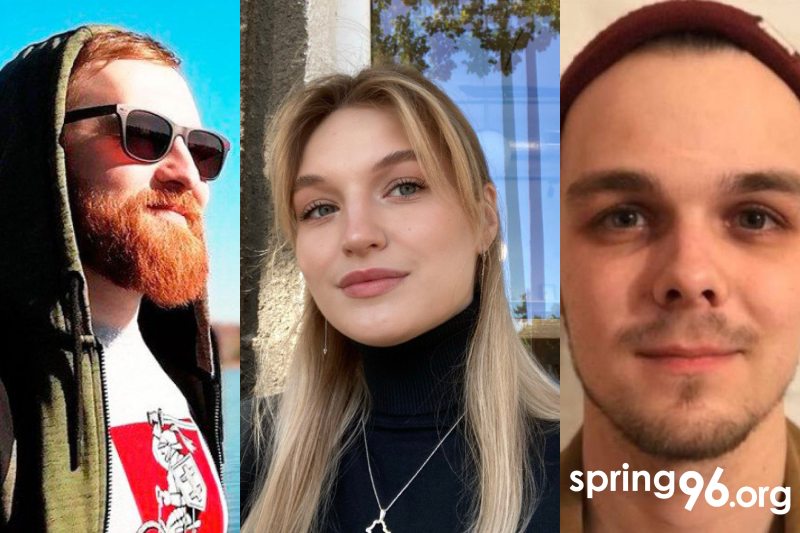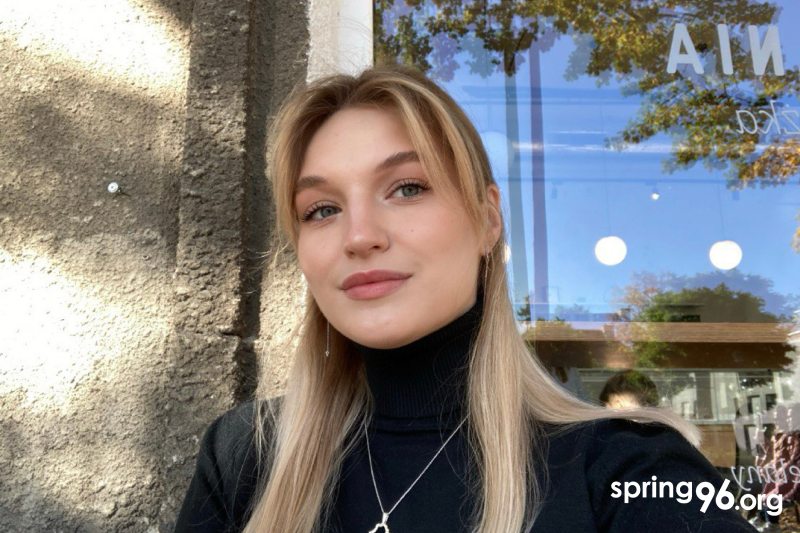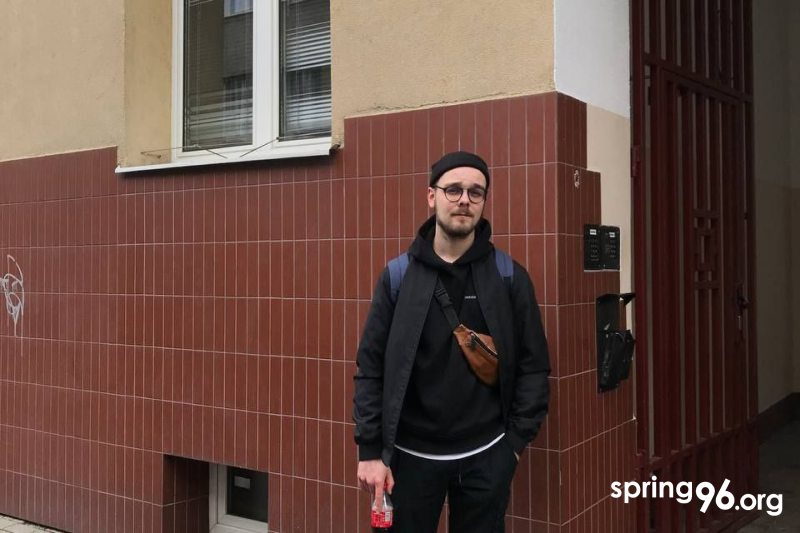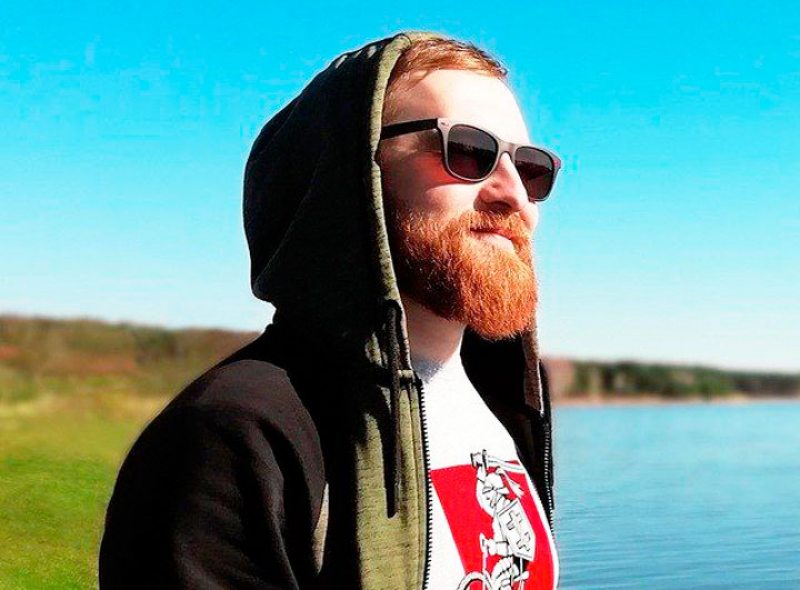How former political prisoners defend the rights of prisoners after their release
On December 10, the world celebrates the International Human Rights Day. 75 years ago, the Universal Declaration of Human Rights was signed on this day. Today, the protection of human rights is more relevant for Belarus than ever. The main focus is the support of political prisoners and their release. Despite the fact that all prisoners in Belarusian prisons are subjected to human rights violations, political prisoners are subjected to particularly cruel treatment and torture. After serving their prison terms, some of them began working for human rights organizations and defending the rights of other political prisoners.
Viasna talked with former political prisoners about the current place of human rights in their lives and how the experience of imprisonment helps in their work.

- Former political prisoners (from left to right) Zmitser Furmanau, Darya Karol, Vasil Tsialenchanka
Darya was detained in 2022 with her boyfriend, convicted of participating in post-election protests, and sentenced to a year and a half of home confinement. The woman left Belarus and now volunteers in Viasna Human Rights Center and the Volnyia human rights initiative to help former political prisoners.
"Before my imprisonment, I never thought about human rights. Then I thought that only lawyers could work with them."

- Darya Karol. Photo from the activist's personal archive
Two categories of prisoners
Former political prisoners can be divided into two categories, says Darya. The former, once free, decide never to deal with social and political activism or political prisoners again.
"And it is easy to understand, because imprisonment takes away a lot of strength and can breaks someone's life. Others, like me, after their release go into professions that help other people. Even while I was in jail, I realized that after my release I would not be able to just forget about my experience. I wanted to help people, tell them what's going on in prisons."
The woman shares why she decided to help the relatives of political prisoners.
"During my imprisonment, I realized that my relatives were suffering as well, because they did not know what was happening to me in prison. This feeling prompted me to volunteer on the Viasna hotline, where I support the relatives of other prisoners and tell them what prisoners usually experience in captivity, what conditions they are kept in. This information brings some certainty to them and somehow calms them down."
Sometimes political prisoners, receiving help from unknown volunteers in prison, are inspired by this support and, upon release, begin to help other prisoners themselves.
"I saw how volunteers helped political prisoners: they transfered food, postcards, and various things. I was greatly and pleasantly surprised by people's care about someone else's trouble. These volunteers have never even seen the political prisoners they helped. I'm telling you this, and I get goosebumps. I can't imagine how much you need to love people and life in order to go help, knowing that you may be detained. Having seen such selfless help from volunteers in my captivity, upon my release I could not just forget the other political prisoners who are still in prison."
"My colleagues perceived human rights defenders as manipulators"
Former political prisoner Anatol (name changed) worked in law enforcement agencies before his imprisonment. The man was sentenced to imprisonment in a penal colony. One of the human rights defenders was amazed by his touching last word at his trial and, upon his release, invited Anatol to work for a human rights organization.
"My colleagues from law enforcement agencies perceived human rights defenders rather negatively, as manipulators, professional complainants. I opposed my colleagues and perceived human rights defenders more as lawyers, representatives of the accused in court."
The former political prisoner shares how his experience of imprisonment helps in his work now.
"Having been in a pre-trial detention center and a colony myself, I can suggest various life hacks to a political prisoner. I understand that it is more relevant for them at a given point in their imprisonment. For example, visits. It happens that people decide to get married in a pre-trial detention centre in order to have meetings. But they are allowed in the pre-trial detention center in the first place. At the same time, if the couple had waited a little and got married in the colony, they would have received an additional long-term visit for three days as a young family."

- Vasil Tsialenchanka. Photo from the activist's personal archive
Former political prisoner Vasil Tsialenchanka worked as a bartender for 10 years. His last place of work was a bar on Kastryčnickaja Street in Minsk. Vasily was detained in the winter of 2021 for participating in protest actions and sentenced to three years in an open-type correctional institution. After his release, he left Belarus and now works in the documentation department of Viasna Human Rights Center.
"Until 2020, I did not have a clear understanding of human rights. In 2020, at the peak of COVID, my life closely intersected with the life of the state (my colleagues and I were forced to close the bar where I worked) and then I saw that we had huge troubles with human rights in Belarus."
"Captivity remains with a released person"
When got out of prison, Vasil has sought to "kill" the captivity in himself, which he was "poisoned" with in prison. He says that sometimes he notices in himself and in some other former prisoners signs of unfreedom and depression from the prison system, which managed to "train" them.
"For example, I met with other former political prisoners in a safe country, and they continued to follow prison rules. But these rules are quite far from freedom of expression. They could say that it's better not to talk about this or that, that it's not worth speaking out loud. When I asked a former prisoner about the details of his case, he looked at me as if I were some kind of spy. Prison slang is also often released together with a person.
Some former prisoners continue to censor not only their words, but also their thoughts in accordance with prison laws."

- Zmitser Furmanau. Photos from the activist's social media
Zmitser Furmanau, a member of the initiative group for the presidential nomination of Sviatlana Tsikhanouskaya, was detained in the summer of 2020 during a picket for signature collection. He was sentenced to 2 years in prison. Having fully served his sentence, Zmitser was released in the autumn of 2021 and left Belarus.
Zmitser took an introductory course at the Belarusian human rights school last year. And then graduated from the International School of Human Rights. After that, Zmitser, along with other graduates, decided to create an initiative Volnyia to help former political prisoners.
"A former political prisoner may be affected by someone else's trauma"
Despite their own imprisonment, it is better for a mentor of a former political prisoner to be a person who has not had such an experience, Zmitser explains.
"I planned to help former prisoners in our initiative. But it is better when a mentor of an ex-political prisoner is not a former political prisoner as well. After all, this is a traumatized person. And even if they received psychological help, went through the rehabilitation process and feel that they can help everyone themself, they can still get affected by someone else's trauma. But no one forbids them to be friends and communicate with former political prisoners we help."
"Political prisoners are released with a feeling of paranoia"
Zmitser says that thanks to the experience of imprisonment, he can now help political prisoners and defend their rights better, as he knows the needs of former prisoners and understands how they feel upon release and what mental condition they have.
"Former political prisoners have a feeling of paranoia. As if their words and behavior are always monitored. After all, this is really what happens during imprisonment: you are always in plain sight. For some people, this can last a very long time. Actually, I still feel somewhat like that. For example, if a person asks me tricky or provocative questions, I treat them with suspicion. Of course, I can't be 100% sure that this is an agent, but there is still paranoia."
"No matter how difficult it is, we must try to negotiate"
Despite the current human rights crisis in the world, Zmitser has a positive view on the issue.
"Now you can see that people are resorting to radical measures in defending their rights, since nothing else works anymore. This is a natural process, although I really would not like it to come to this. It is worth believing and enduring to the last, because if we do not try to negotiate, but immediately turn to harsh methods, it may get even worse and not only human rights will not be respected, but the world may cease to exist."

















